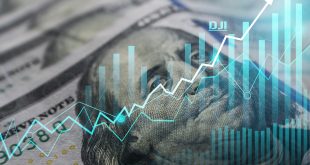US stock markets displayed a mixed performance on Thursday, July 24, 2025, as robust corporate earnings fueled gains in technology and telecom sectors, while tariff uncertainties and disappointing results in other industries weighed on the broader market. The S&P 500 eked out a 0.07% gain, securing its fourth consecutive record close, driven by optimism around AI-driven growth from major tech firms. Meanwhile, the Nasdaq Composite rose 0.18%, also hitting a fresh record, propelled by strong performances in tech and telecom. However, the Dow Jones Industrial Average fell 0.70%, dragged down by significant declines in consumer goods, basic materials, and healthcare sectors, reflecting a market caught between optimism and caution.
The technology sector shone brightly, with Alphabet leading the charge after reporting second-quarter earnings that exceeded expectations, boosting its stock and reinforcing AI as a key growth driver. T-Mobile US also surged, gaining 5.8% after adding 1.7 million postpaid customers, driven by its premium Experience Beyond plan, with sales rising 6.9% to $21.1 billion. Nvidia and Amazon also posted gains of 1.76% and 1.73%, respectively, riding the AI wave. However, Tesla stumbled, dropping 8.2% after an earnings miss and a warning of “rough quarters” ahead due to the phasing out of EV tax credits and a 23% sales decline in Europe. Intel faced challenges too, with shares down 3.66% as it reported lower-than-expected revenue of $11.8 billion, signaling ongoing struggles in the chip sector.
In contrast, traditional sectors faced headwinds. Dow Inc plummeted 17.47% to a five-year low of $25.07, hit hard by tariff uncertainties impacting basic materials. Healthcare stocks also struggled, with UnitedHealth dropping 4.76% amid a Department of Justice investigation into its Medicare billing practices. Molina Healthcare and LKQ Corporation saw sharp declines of 16.84% and 17.82%, respectively, hitting three-year lows. The airline industry echoed this weakness, with American Airlines and Southwest falling 9.62% and 11.16% after reporting weak domestic travel demand and lowered profit forecasts, citing economic uncertainty and softer fares.
Trade developments added to the market’s mixed outlook. Optimism grew around a potential US-EU trade deal that could lower tariffs on most European exports to 15% from a threatened 30%, following a recent US-Japan agreement. However, the looming August 1 deadline for these “reciprocal” tariffs kept investors on edge, with the proposed 15% rate marking an increase from the current 10% baseline. The CBOE Volatility Index rose slightly to 15.40, reflecting cautious sentiment. Meanwhile, a meme stock frenzy continued, with speculative names like Opendoor, Kohl’s, and Krispy Kreme seeing sharp rallies, signaling heightened retail investor risk appetite.
Economic data provided some reassurance, with initial jobless claims dropping to 217,000 for the week ending July 19, the lowest in three months, suggesting labor market resilience. However, rising continuing claims of 1.955 million hinted at longer job search times. In commodities, gold futures fell 0.73% to $3,372.72, while crude oil and Brent contracts rose 1.29% and 1.08%, respectively, to $66.09 and $69.25. The US Dollar Index edged up 0.27% to 97.21, with the euro steady at 1.18 against the dollar. As markets brace for upcoming economic indicators like PMI data and new home sales, the interplay of strong earnings, tariff negotiations, and sector-specific challenges will continue to shape the trajectory of US stocks.

 Noor Trends News, Technical Analysis, Educational Tools and Recommendations
Noor Trends News, Technical Analysis, Educational Tools and Recommendations




